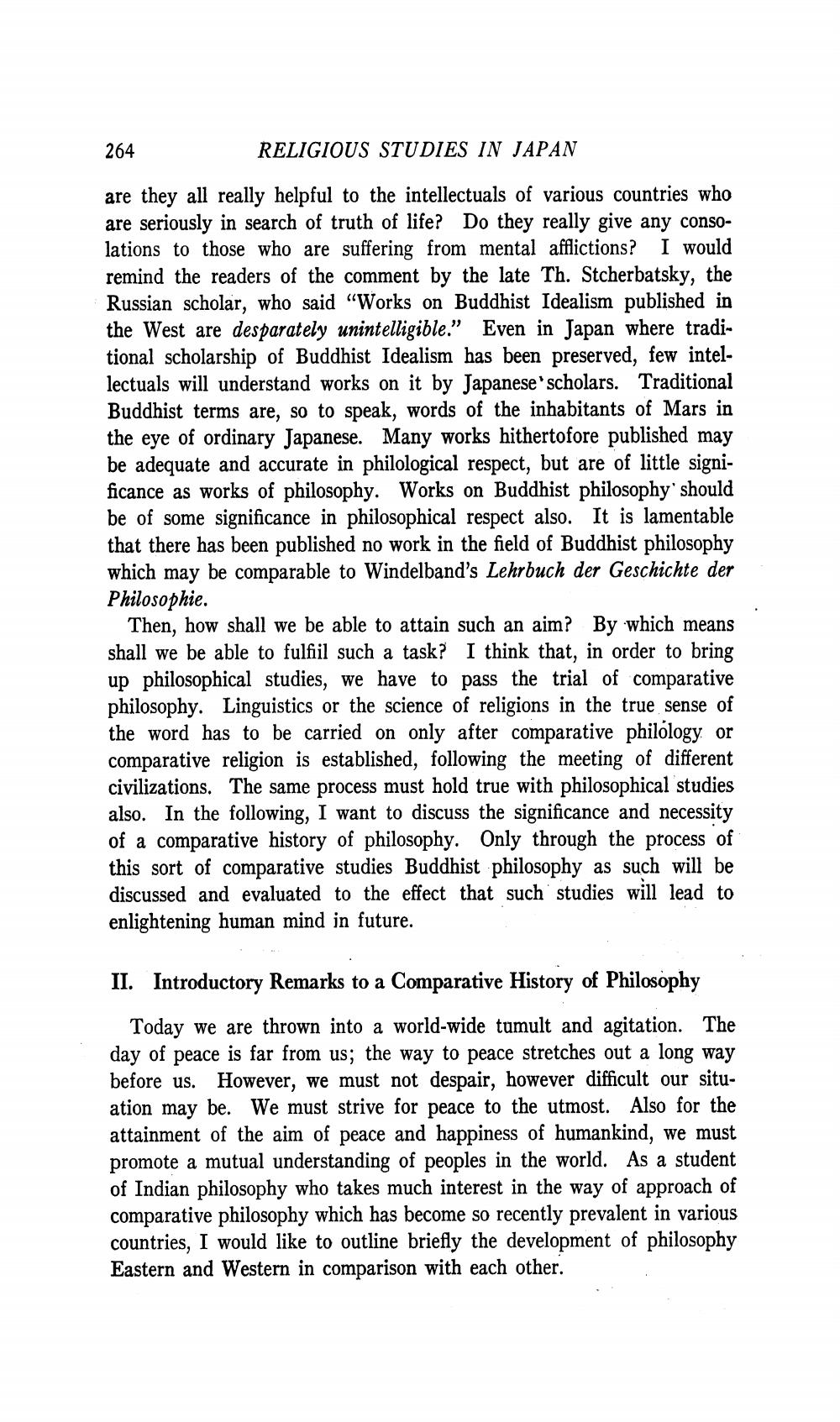Book Title: New Way Of Approach In Buddhist Studies Author(s): Hajime Nakamura Publisher: Hajime Nakamura View full book textPage 2
________________ 264 RELIGIOUS STUDIES IN JAPAN are they all really helpful to the intellectuals of various countries who are seriously in search of truth of life? Do they really give any consolations to those who are suffering from mental afflictions? I would remind the readers of the comment by the late Th. Stcherbatsky, the Russian scholar, who said "Works on Buddhist Idealism published in the West are desparately unintelligible.” Even in Japan where traditional scholarship of Buddhist Idealism has been preserved, few intellectuals will understand works on it by Japanese scholars. Traditional Buddhist terms are, so to speak, words of the inhabitants of Mars in the eye of ordinary Japanese. Many works hithertofore published may be adequate and accurate in philological respect, but are of little significance as works of philosophy. Works on Buddhist philosophy' should be of some significance in philosophical respect also. It is lamentable that there has been published no work in the field of Buddhist philosophy which may be comparable to Windelband's Lehrbuch der Geschichte der Philosophie. Then, how shall we be able to attain such an aim? By which means shall we be able to fulfiil such a task? I think that, in order to bring up philosophical studies, we have to pass the trial of comparative philosophy. Linguistics or the science of religions in the true sense of the word has to be carried on only after comparative philology or comparative religion is established, following the meeting of different civilizations. The same process must hold true with philosophical studies also. In the following, I want to discuss the significance and necessity of a comparative history of philosophy. Only through the process of this sort of comparative studies Buddhist philosophy as such will be discussed and evaluated to the effect that such studies will lead to enlightening human mind in future. II. Introductory Remarks to a Comparative History of Philosophy Today we are thrown into a world-wide tumult and agitation. The day of peace is far from us; the way to peace stretches out a long way before us. However, we must not despair, however difficult our situation may be. We must strive for peace to the utmost. Also for the attainment of the aim of peace and happiness of humankind, we must promote a mutual understanding of peoples in the world. As a student of Indian philosophy who takes much interest in the way of approach of comparative philosophy which has become so recently prevalent in various countries, I would like to outline briefly the development of philosophy Eastern and Western in comparison with each other.Page Navigation
1 2 3 4 5 6 7 8 9 10 11 12 13 14 15 16 17 18 19 20 21
